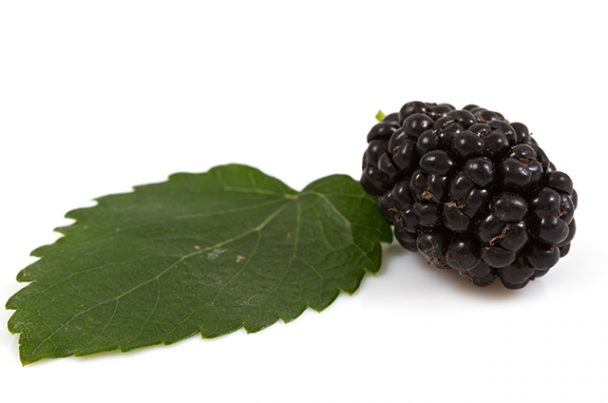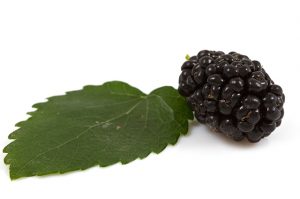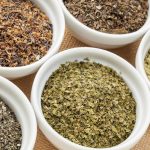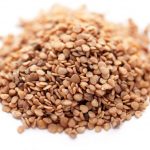- Herbs.news
- Fresh.news
Mulberry Leaf – sources, health benefits, nutrients, uses and constituents at NaturalPedia.com
Wednesday, August 23, 2017 by Earl Garcia
http://www.naturalnewsherbs.com/2017-08-23-mulberry-leaf-sources-health-benefits-nutrients-uses-and-constituents-at-naturalpedia-com.html

Mulberry leaves are traditionally consumed as infused tea. The leaves come from any of the 10 species of the mulberry tree, a hardy tree native to Asia. The leaves are usually harvested in autumn and are dried to make tea. Mulberry leaves are used in traditional Chinese medicine for a plethora of health concerns. According to the Live Strong website, mulberry leaves are commonly used as a weight loss aid in the form of diet pills.
List of known nutrients
Mulberry leaves are an excellent source of powerful components that contribute to its numerous health benefits. An entry posted on the Green Silk website lists the many essential nutrients found in mulberry leaves. These include:
- 1-Deoxinorjirimiycin
- Amino Acids
- Calcium
- Carotenoids
- Chlorophyll
- Ecdysone
- Flavonoids
- Gallic Acid
- Gamma Amino Butyric Acid
- Iron
- Magnesium
- Phytosterols
- Potassium
- Quercetin
- Vitamin A
- Vitamin B1
- Vitamin B2
- Vitamin B6
- Vitamin C
- Zinc
Medicinal uses for mulberry leaves
Mulberry leaves are traditionally used to regulate the body’s blood sugar levels. According to the Chinese Herbs Healing website, the leave’s glucose-lowering effects are largely due to its rich concentration of amino acids, fiber, vitamins, and minerals as well as alkaloids and polysaccharides. Mulberry leaves work by inhibiting the alpha-glucosidase activity, the article notes. This effect subsequently delays the breakdown of starch and food into glucose and fructose, and prevents sudden spikes in blood sugar levels after meals.
Previous studies have shown that mulberry leaves are notably effective in controlling the body’s blood sugar levels. In fact, a 2012 study has revealed that the gallic acid in mulberry leaves helped reduce blood glucose levels in patients. In another study, diabetes patients who were given mulberry extracts reported significant reductions in blood sugar fluctuations after meals.
The medicinal leaves are also valued for their beneficial effects on the overall cardiovascular health. An article posted on the Health Benefits Times website reveals that the flavonoids and quercetin in mulberry leaves inhibit cholesterol oxidation and oxidative stress in the blood vessels. Daily consumption of mulberry tea may significantly improve blood vessel health and help mitigate the risk of developing atherosclerosis, the article states.
Mulberry leaves are valued for their high magnesium content as well. The rich magnesium supply in mulberry leaves help improve nerve, muscle and cardiac functions. Likewise, the mineral enhances energy metabolism, bone density, and the body’s overall immunity. The medicinal leaves are also touted for their high vitamin B2 levels, which promotes red blood cell production and improves total blood circulation in the body.
Moreover, mulberry leaves are an excellent source of vitamin A that protect the eyes against a variety of disorders. The essential vitamin also improves skin health and staves off a host of skin disorders such as acne and melasma.
Furthermore, mulberry leaves are known to address other ailments such as:
- Menopausal Symptoms
- Hair Loss
- Inflammation
- Bacterial Infection
- Constipation
- Liver Cancer
Body systems supported by mulberry leaves
Mulberry leaves are notably effective in maintaining a healthy digestive profile. Likewise, the medicinal leaves help improve cardiovascular health, bone density and overall immunity. Mulberry leaves also promote healthy blood circulation and supports the nerves, muscles, and the eyes.
Ways to use mulberry leaves
Mulberry leaves are often consumed as hot tea to relieve a vast number of ailments. Aside from its medicinal use, mulberry leaves are completely edible and are traditionally consumed as food. One way to cook young, tender mulberry leaves is to stuff them with ground meat. An article published on the Green Prophet website features an interesting recipe for stuffed mulberry leaves.
Where to learn more
Summary
Mulberry leaves prevent diabetes, cancer, and cardiovascular diseases.
Mulberry leaves stave off eye conditions, skin disorders, and infections.
Mulberry leaves benefit the digestive system, the heart, and the bones.
Mulberry leaves supports the both the circulatory and immune systems.
Mulberry leaves maintain healthy nerves, muscles, and eyes.
Sources include:
Tagged Under: Tags: Mulberry leaf







